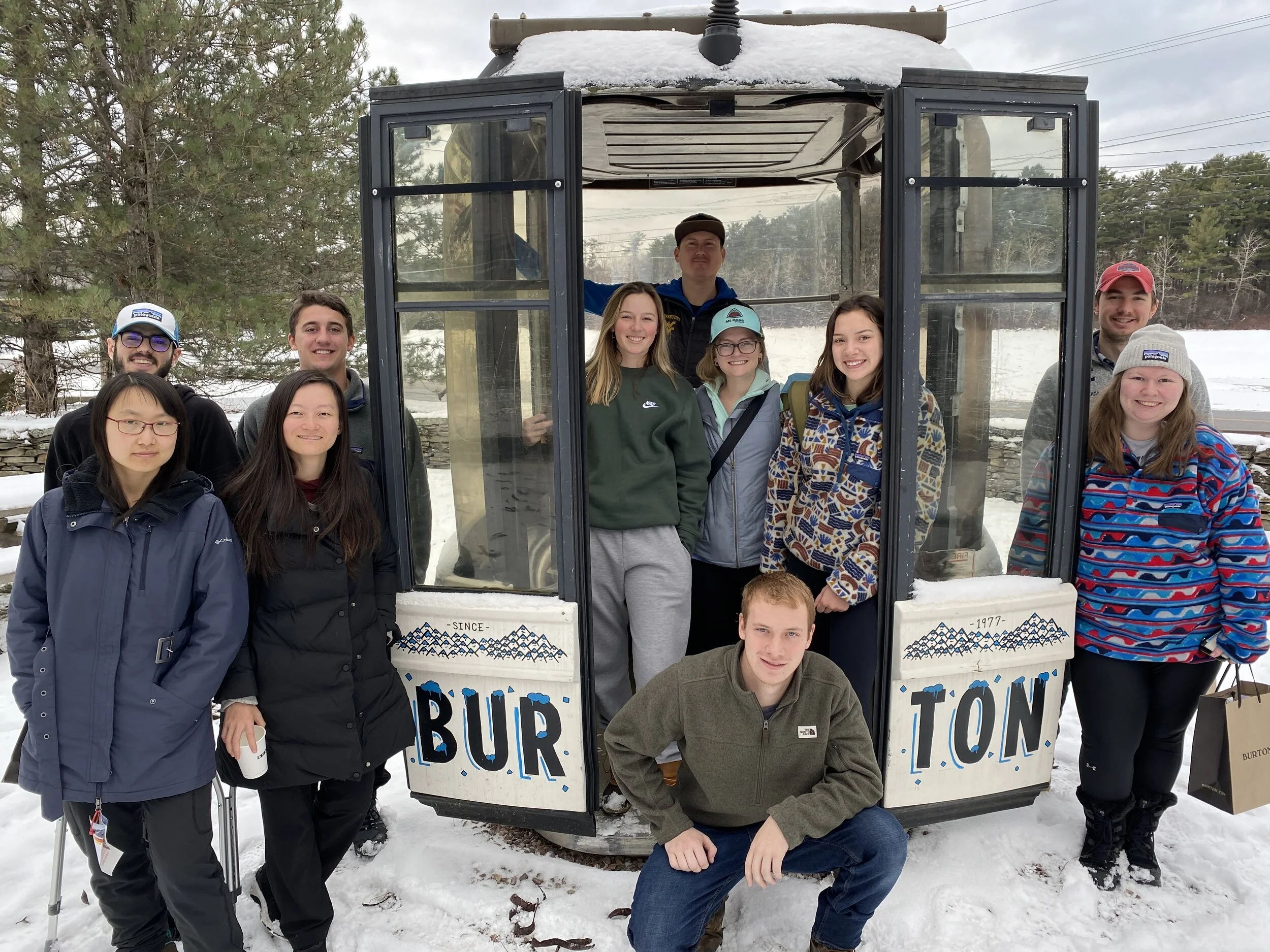To Lead and Manage in the Public Interest
2020 Adventure WV New England Winter Break Trip
As Andrew has learned from his coursework at WVU and through his work with various organizations, leadership is a central component to the health and wealth of the organization. Leadership can take on different forms and does not always have to be the loud, steadfast, charismatic organizer. As he works as Executive Director of the Mountaineer Trail Network (MTN) to apply this concept to his everyday operations managing partners and board members within the 16 county network, Andrew cannot help but notice that leadership takes just as much listening and reflection as it does action and decision-making.
If leadership is the cultural and transformational actor or actions that create opportunities for change within organizations, management is the day-to-day operational outputs that ultimately push the organization toward its goals. Management is the structures within the organization, the operational footprint, the command structure, and the organization’s ability to mobilize and capitalize on their mission and culture.
Andrew’s position as Executive Director of the MTN focuses heavily on tasks that fall under “Management”. He spends most of his day managing projects, assets, funding, reporting, and communications toward the accomplishment of the MTN’s mission. Andrew uses the trust and discretion that he has earned from his fellow project partners to work semi-autonomously within the world of public administration in 5 key outdoor recreation communities around the state (Tucker (Cheat/Camp 70), Wood (Mountwood Park), Preston (Cheat/Big Bear Lake), and Pocahontas (Snowshoe Mountain) Counties). The management skills learned in Andrew’s MPA coursework and day-to-day operations have given him the ability to build successful structures, communication standards, feedback loops, effective policies and procedures, and a sense of purpose for the MTN and abroad.
To Participate in, and Contribute to, the Policy Process
Adventure WV Outdoor Recreation Economy Launch Lab Event
During Andrew’s time at the MTN the importance of systems and how to properly communicate within an organization heightened his ability to efficiently and effectively participate in, and contribute to, the policy making process. During his time he focused specifically on how to write effective communications, how to structure policy documents, and how to create meaningful structure within organizations. When Andrew was working to create the Morgantown Area Mountain Bike Alliance’s (MAMBA) mission statement, by-laws, articles of incorporation, and financial structures the lessons learned allowed him to participate and contribute to meaningful and purposeful policies that became the backbone of this organization.
In addition to MAMBA, his time working with Adventure WV had also been based around creating and implementing meaningful policy by which student staff and the professional staff at Adventure WV operate within. Knowing how to create stakeholder engagement and the different approaches that administrators can use to accomplish this mission was vital to Andrew’s ability to act quickly and maximize the most from the time he has with his students. Understanding the different traditions within administrative governance has given Andrew a better understanding of how to contribute to the policy process and more importantly how to bring others in to participate in the policy.
Critical Thinking, Problem Solving, and Decision Making
Youghiogheny River @ Ramcat Rapid. Confluence, Pennsylvania (Kayaker: Tommy Brown)
While working for Adventure WV, Andrew has had the opportunity to work directly on a series of highly intricate logistical frameworks. Program Support Staff and Rental Operations currently coordinates all food, vehicles, and equipment for the whole of the Adventure WV department. That includes not only the upkeep of a vast programming and rental equipment fleet but also the facilitation of feeding over 1,000 incoming students while they participate in Adventure WV’s First Year Trip summer programs. Andrew’s ability to be flexible and to have an established understanding of his team’s strengths and weaknesses have helped him navigate the complex environment that comes with operating logistics for the nation’s largest and most successful outdoor orientation program while simultaneously coordinating the Outdoor Recreation Center’s outdoor equipment rental program within the same space and resources. Examples of these systems and skills can be found within the links listed below.
To Articulate, Apply, and Advance a Public Service Perspective
Westover City Mountain Bike Trails, West Virginia
When the founding board members first wanted to create the Morgantown Area Mountain Bike Alliance (MAMBA), there was a growing concern that the need for better designed and protected mountain bike trails was paramount to the citizens of Morgantown. With several large organizations descending on Morgantown with hopes of building and implementing a new shared usage trail network, it was important that mountain bikers and other citizens had a voice to engage in the process.
Through the strategies and techniques learned in the MPA program Andrew was able to effectively articulate, apply, and advance a public service perspective to the two largest organizations working on this future; the city of Morgantown and West Virginia University. He was able to articulate different perspectives throughout the process of gathering stakeholder engagement and gathered feedback for use determining upcoming policies and historical trends. Andrew was able to utilize these trends and stakeholder information to formalize an approach to apply these perspectives and needs to the policy process. As a leader within MAMBA, Andrew was able to advance these stakeholder perspectives to make sure that they were included in the organization’s forward focusing policies and action plans. His interaction within the MPA program gave him the civic engagement tools needed to bring people together to hear their thoughts and concerns and it allowed Andrew to categorize their feedback in a way that was highly applicable moving forward with regards to MAMBA’s overall mission and goals.
Communication and Staff Management Systems in a Diverse Workforce and Citizenry
Adventure WV: Program Support and Rental Operations (Sarah Glover and Garrett Weigel)


